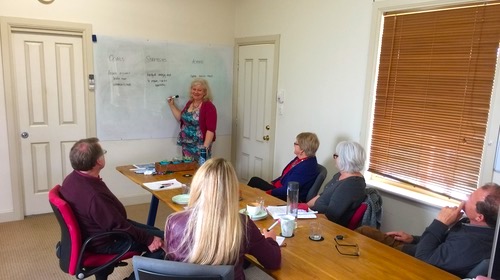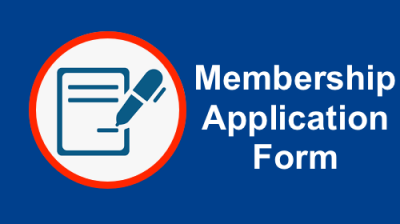Boards and Committees
Discover everything you’ll need to know about governance and leading. From meetings to financial reports, you’ll find it here.

Videos
Hand-curated micro-learning short videos giving you knowledge and practical actions to help you start, build and grow your organisation.

Starting a Not-for-Profit
Thinking of launching a not-for-profit? We dive headfirst into the world of not-for-profits. Whether you’re a seasoned philanthropist or just starting out, we go through ...
Accidental Counsellor
Learn how to become a good listener, resolve emotional situations, learn about your own triggers, and how not to take things personally.
How to run your AGM
Watch our experts Natalie Bramble and Andrew Wright explain how to run a smooth and legally compliant AGM.
Approving Your Budget
Learn what information is contained in a budget, red flags to look out for, and questions to ask before voting to approve a proposed budget.
5 Tips for effective meetings
Hear governance expert Natalie Bramble’s top 5 tips for effective meetings.
Legal Structures
Understand and explore the governance and management structure of organisations.
Organisational Structure
Understand and explore the governance and management structure of organisations.
How to Take Meeting Minutes
Have you ever been asked to take minutes at a meeting and panicked because you didn’t know what to do? The take a deep dive ...
Can Members Request a General Meeting?
A discussion about can members request a general meeting of the organisation?
Due Diligence
9 steps to understand your roles and responsibilities on a committee or board [Video Series]
Measuring and Managing the Performance of Your People
How performance reviews in your service build a more effective organisation
How you can Create an Ethical and Effective Workplace Using Simple Strategies
Simple strategies to reduce conflict and strengthen your culture.
Become an Effective Board Member
How to know what you're signing-up for before you join a board or committee.
Legal Responsibilities of Committee Members
Want your members to know their legal duties? Brush up on these basics.
What’s in a Constitution?
How to meet your legal requirements and get your constitution up to scratch.
5 Committee Roles Explained
A short video series explaining the roles of the Secretary, Treasurer, Vice President, Grievance Officer and President.
Attracting New Committee Members
Get new high quality members who add value to your organisation.Get the word out and inspire high-quality people to join your committee.
Induction for New Members
Get new high quality members who add value to your organisation
General Committee Members
Understand the key role of general members with this quick guide.
Designated Roles Within a Management Committee
How your constitution works and what you need to know about it. Help smooth communications between committee and staff using these roles.
Articles
Helpful written information sharing ‘how-to’s with steps guiding you through topics you want to learn.

Social Impact
Watch our two not-for-profit experts and learn what social impact is and how to identify the difference you make.
Governance and Your Organisation
Good governance is essential for the health and efficacy of not-for-profits.
Informed Decision Making in Your Not-For-Profit
How does informed decision-making lead to better governance in not-for-profits? This simple checklist will help your organisation make better decisions.
What is a Code of Conduct and Why Do You Need One?
Our code of conduct articulates your organisation’s core values. It also establishes ethical and behavioural standards for members and employees.
Getting to Know Your Constitution
Your not-for-profit’s constitution is an essential governing document. As your organisation changes, your constitution might change too.
Governance Risks for Service-Based Organisations
Service-based organisations like childcare services and neighbourhood centres face unique governance risks. Check our list here.
Membership Application Form
Your membership application form will help you manage eligibility; compliance to the rules and voting rights!
Committee Nomination Form
This form will help you manage the committee member nomination process at your AGM.
Boards and Committee Legal Obligations
It’s essential you know and understand your legal obligations as a committee member.
Incorporation: Step by Step
In this article we’ll discuss what incorporation means and guide you through the steps to become incorporated.
Should we Incorporate?
Are you part of a group, club, or society thinking of incorporating? Here are the pro's and con's of incorporating.
Courses
Guided courses taking you through a specific topic. From short topic focused courses or deeper dive courses on specific subjects.

How to Develop a Logic Model [Course]
A logic model is a structured process to use to plan and assess your organisations purpose and what you are doing to achieve that purpose.
Questions to Ask Your Board [Course]
If you’re new to a committee or board, or a long-time member this course will go over the foundational essentials you really should know to your job.
Strategic Planning [Course]
This recorded advanced webinar workshop on strategic planning is suitable to service based boards.
Assessing and Evaluating Boards And Committees [Course]
It’s essential that all board members take the job seriously and ensure they are working together as an efficient and effective team.


































